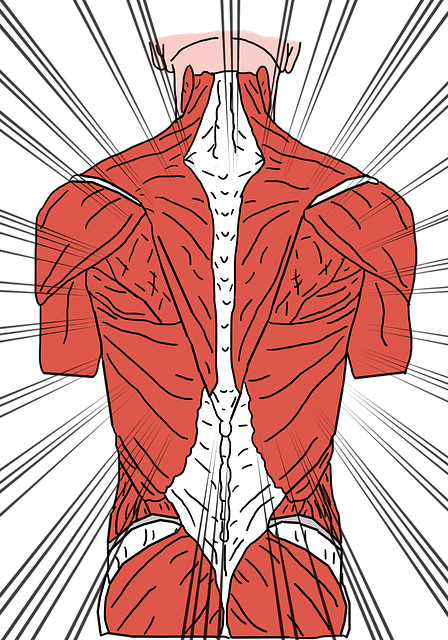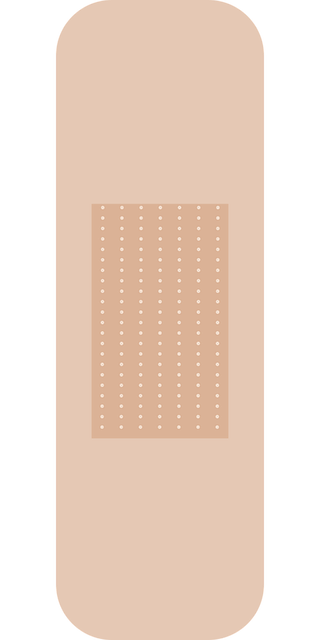Chronic pain, differing from acute pain in its longevity, significantly impacts quality of life, stemming from diverse sources including injuries and conditions like arthritis or nerve damage. Effective holistic chronic pain management involves addressing physiological and psychological dimensions through treatments such as medication, physical therapy, cognitive behavioural therapy, lifestyle changes, dietary adjustments, mindfulness practices, and gradual lifestyle modifications. This comprehensive approach empowers individuals to regain control over their pain, enhance daily activities participation, and achieve lasting pain relief. Keywords: chronic pain management.
“Chronic pain is a complex, persistent companion affecting millions, significantly impacting their quality of life. This article delves into comprehensive holistic regenerative programs designed to offer lasting solutions for pain-free living. We explore the multifaceted approach to managing chronic pain, encompassing dietary adjustments, mind-body practices, and lifestyle modifications. By understanding the root causes and implementing these strategies, individuals can take control, experience healing, and reclaim their lives.”
- Understanding Chronic Pain: Causes and Impact
- The Holistic Approach to Pain Management
- Diet and Nutrition for a Pain-Free Body
- Mind-Body Practices for Healing and Balance
- Lifestyle Modifications for Long-Term Relief
Understanding Chronic Pain: Causes and Impact

Chronic pain is a complex and persistent issue that significantly impacts an individual’s quality of life. It differs from acute pain, which serves as a warning signal for potential harm or injury, as it continues long after the initial cause has healed. This prolonged state of discomfort can arise from various sources such as injuries, conditions like arthritis, nerve damage, or even psychological factors. The impact of chronic pain is multifaceted; it can lead to physical limitations, sleep disturbances, mood alterations, and a reduced overall sense of well-being.
Effective chronic pain management requires a holistic approach that addresses the physiological and psychological aspects of the condition. This often involves a combination of treatments including medication, physical therapy, cognitive behavioural therapy, and lifestyle modifications. By targeting these multiple facets, individuals can gain better control over their pain, improve their ability to engage in daily activities, and ultimately achieve a pain-free living experience.
The Holistic Approach to Pain Management

In the realm of chronic pain management, a holistic approach is transforming lives by addressing the root causes rather than merely masking symptoms. This method views an individual as a whole—a symphony of interconnected physical, mental, and emotional elements. By understanding that pain is often a multifaceted issue, stemming from factors like stress, nutrition, environment, and even our thoughts, a holistic program can create a powerful change.
Holistic regenerative programs tailor interventions to each person’s unique needs. They may incorporate dietary changes to reduce inflammation, mindfulness practices for stress reduction, physical therapies to restore mobility, and natural supplements to support healing. This comprehensive strategy empowers individuals to take control of their well-being, fostering a deeper connection with their bodies and leading to lasting pain relief.
Diet and Nutrition for a Pain-Free Body

Diet and nutrition play a pivotal role in holistic regenerative programs designed for chronic pain management. The right dietary choices can significantly impact an individual’s overall health and their ability to combat persistent pain. By focusing on whole, unprocessed foods rich in antioxidants, essential fatty acids, and vitamins, individuals can support their body’s natural healing processes. Antioxidant-rich fruits and vegetables, for instance, help reduce inflammation while promoting tissue repair. Additionally, incorporating omega-3 fatty acids from sources like fish, nuts, and seeds can alleviate joint pain and improve overall mobility.
A balanced diet also ensures adequate nutrient intake, which is crucial for maintaining a healthy immune system. A strong immune response is essential for fighting off infections and reducing the risk of chronic conditions that can contribute to pain. Moreover, staying hydrated by drinking enough water supports lymphatic flow, aiding in the elimination of toxins and metabolic waste products that may cause or exacerbate pain symptoms. Holistic practitioners often emphasize personalized nutrition plans tailored to an individual’s unique needs, focusing on what works best for their body to achieve a pain-free lifestyle.
Mind-Body Practices for Healing and Balance

Mind-body practices have emerged as powerful tools in the holistic approach to chronic pain management. Techniques such as yoga, tai chi, and meditation encourage a deep connection between the mind and body, fostering healing and restoring balance. These ancient practices have been scientifically proven to reduce stress hormones, improve circulation, and enhance overall well-being, all of which contribute to managing chronic pain effectively.
By integrating mindfulness into daily routines, individuals can develop a greater awareness of their bodies, enabling them to recognize early signs of discomfort or tension. This heightened consciousness allows for proactive measures, such as adjusting posture, practicing deep breathing exercises, or incorporating gentle stretching, thereby preventing pain from escalating. Mind-body practices also promote relaxation and emotional well-being, addressing the mind-body connection that is often overlooked in traditional medical treatments for chronic pain management.
Lifestyle Modifications for Long-Term Relief

Lifestyle modifications are a cornerstone in holistic regenerative programs designed for chronic pain management. This involves adopting a series of healthy habits that can significantly reduce pain and improve overall well-being. Key changes include dietary adjustments, such as focusing on anti-inflammatory foods and staying hydrated, alongside regular physical activity tailored to individual needs. Adequate sleep hygiene is another vital component, as it allows the body to repair and rejuvenate. Stress management techniques, like mindfulness meditation or yoga, can also play a crucial role in pain reduction by promoting relaxation and lowering stress levels.
In addition, staying active within safe limits helps strengthen muscles and improve flexibility, reducing strain on joints and tissues. Avoiding prolonged periods of inactivity or bad posture is equally important. Holistic programs often encourage the development of these habits gradually and mindfully, ensuring they become sustainable lifestyle choices for long-term pain relief rather than temporary fixes.
Holistic regenerative programs offer a transformative path towards pain-free living. By addressing the root causes of chronic pain through a combination of dietary adjustments, mind-body practices, and lifestyle modifications, individuals can regain control over their well-being. Adopting these holistic approaches empowers folks to navigate their pain journey with greater understanding, resilience, and long-term relief in mind. Effective chronic pain management is not just about treating symptoms; it’s about nurturing the body, calming the mind, and cultivating a balanced lifestyle for optimal health.
